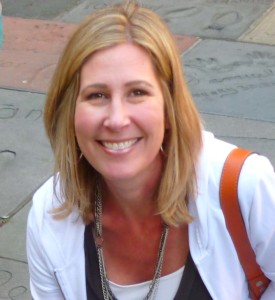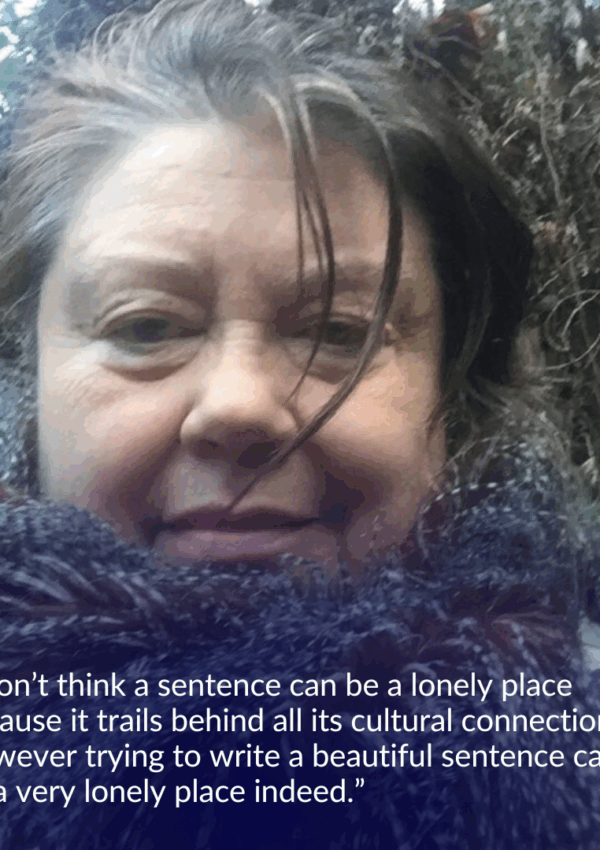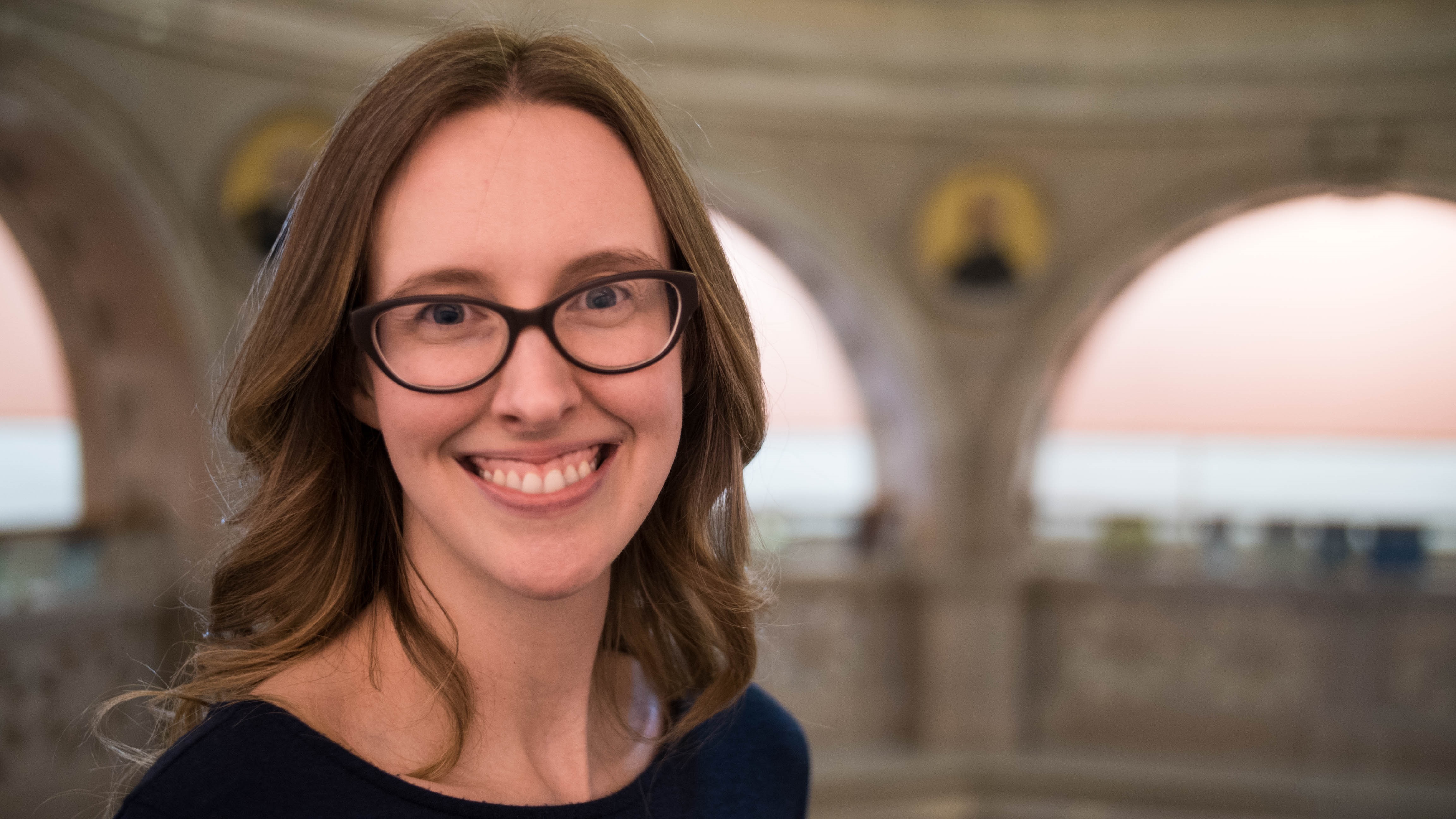It’s time for a confession. I have been hiding my poetry writing as a shameful secret for quite some time. Those few occasions when I spoke the words out loud to someone, “I’m a poet,” I felt like I was confessing something taboo like, “I’m a sex addict, or “I eat raw cookie dough.” Poetry isn’t a mass appeal medium, and people who don’t love poetry often look at a poet blankly and ask, “But why poetry?”
But ever since I decided to go back to school for my MFA, I’ve had to bring my dirty little secret out in the light more frequently, and to a broader range of people. When asked by someone what I do, I usually mumble something about being in a transition period, which is when my husband often chimes in to fill my too-long pause and proudly share that I’m in graduate school for creative writing. And typically, the logical follow-up question will lead to the kind of writing I do.
I was recently talking with an environmental lawyer and feeling a little job envy over the fact that the work he does makes an impact upon the greater good. One aspect of my MFA has been directed toward studying environmental and nature writing, since I’m always drawn to nature themes in my writing and often have some environmental viewpoint I want to share (in the case of my kids, it’s nagging them to recycle and conserve water). But in all honesty, part of my decisions to study this had more to do with the fact that I thought it sounded more socially acceptable to say, “I study environmental writing and poetry.”
You see, I wasn’t always a poet. When I started getting serious about writing in my twenties, I wrote fiction, more specifically, young adult fiction. I taught upper elementary school for the first few years out of college and fell in love with many of the novels I read to my class, Island of the Blue Dolphins, Charlotte’s Web, The Giver. And I was convinced that some day one, or maybe more, of my novels would become a beloved class read-aloud book. I was going to speak to adolescents and young teens as intelligent adults and write important matters into their lives.
So I began taking a creative writing certificate program at the local university and formed a critique group with several of the other students. I joined the Society of Children’s Book Writers and Illustrators and attended local events and a national conference. I completed one full novel, a YA historical fiction, which took a good three to four years to research and write. I also had character and plot outlines and skeleton drafts for two other young adult novels.
These were good prose years for me, productive and exciting. My historical novel was accepted for publication by an online publisher. I was able to float on the cloud of being able to say I had a novel under acceptance by a publisher for about three months until the health of the publication’s owner/editor forced them to close down. And my bubble burst and spilled out onto the other ideas in various stages of development.
Had this been my only life setback to hit at once, I probably would have picked myself up, sent out more queries for the historical piece, and gotten back to working on the projects that were waiting to be brought out to the debutante ball.
But life has a wicked sense of humor, and often decides to present multiple challenges at once. Within a couple months of the publisher closing its doors, I became single after nineteen years with my then husband. The first traumatic steps to the process happened to coincide with the week of 9/11 and the terrible nightmare our nation was thrown into. With the emotional impact of tragedy on both the personal and national level happening simultaneously, I had plenty of thoughts, feelings, and experiences to process, but I was too drained to string two coherent thoughts together, let alone write them down in a way that a reader might find inspiring. So I stopped writing fiction. It was several years before I mustered the creative energy or aspiration to get back onto track to becoming a serious author.
And then W.S. Merwin happened to me. I remember flipping through a magazine in a doctor’s office (maybe it was my lawyer’s office, given my life at the time). And I stumbled on his beautiful, short poem, “For the Anniversary of My Death.” This poem, in its inspired simplicity, turned me on my head, and I began seeing my writing ambitions spin off into a new direction I never expected. If you haven’t read it, please do yourself a favor and look it up. The surprising premise of the poem showed me poetry’s ability to make us think about something, anything, in a completely different light. You thought I was going to write a spoiler here, didn’t you?
Poetry gave me a new way to process everything I had been feeling, seeing, and discovering about life through the challenging periods, as well as through the great ones. I discovered I love the freedom it allowed to explore ideas in abstract, vivid, and unusual ways without having to turn back thirty pages to make sure I had left a bread crumb trail for readers to follow.
And that leads me to another reason why poetry. There are far too many topics I am interested in exploring, and poetry provides that avenue more so than a lifetime of novels could cover. With my fickle curiosities, and love of shiny things, I become interested in new topics and ideas all the time. With poetry’s condensed form and compressed writing period (although some poems are in revision for years), I permit myself to flit from topic to topic in the service of my craft rather than berate myself for my short attention span. And I always have a full store of writing prompts to choose from.
Getting back to the environmental lawyer, who was very kind and showed genuine interest in what I do. He prompted me to consider another argument in favor of poetry (he is a lawyer after all). You see, I believe that no matter what information presents itself to the public consciousness, there is always a need for diverse channels of communication to convey human knowledge and shared experiences. Maybe someone will pick up a magazine as I did in that doctor’s (or lawyer’s) office and read a poem of mine that turns them on their head and makes them consider some aspect of life in a slightly different light.
This is not to say there isn’t a novel or a collection of short stories lurking somewhere in my future. It just means that I’ve found the genre that brought me back to my creative self, and I intend to honor the process. As Anne Lamott said, “Very few writers really know what they are doing until they’ve done it.” And thankfully, I’m back to writing, waxing poetically as I figure things out.
 Michelle Boland is a poet and essayist completing her MFA at Lesley University in Cambridge, Massachusetts. Her poems have appeared in Black Fox Literary Magazine, Autumn Sky Poetry Daily, and California Quarterly. When she’s not writing she is working with a local nonprofit that serves foster and emancipating youth, practicing hot yoga, or travelling. She lives with her husband in Southern California.
Michelle Boland is a poet and essayist completing her MFA at Lesley University in Cambridge, Massachusetts. Her poems have appeared in Black Fox Literary Magazine, Autumn Sky Poetry Daily, and California Quarterly. When she’s not writing she is working with a local nonprofit that serves foster and emancipating youth, practicing hot yoga, or travelling. She lives with her husband in Southern California.
Michelle’s poetry appears in Black Fox Issue 15.



